For a healthy body, you need to ensure you are eating a balanced diet. Balanced diet includes protein, vitamins, healthy fat, carbs, and of course, minerals. Many people do not understand the importance of minerals that actually work as electrolytes and help conduct an electric current. Without electrolytes, your nervous system will not function properly. Electrolytes also ensure proper fluid and acid-based balance in your body and facilitate muscle contraction. Minerals like chloride, sodium, calcium, and potassium work as electrolytes and maintain the fluid balance in your body. Your electrolytes reserves deplete when you sweat, so it is important to use different sources of electrolytes to feel fresh again. Let's find out more about the best ways to improve levels of electrolytes in your body.
Basics about Electrolytes
As mentioned already, minerals work as electrolytes in your body, but different minerals have different roles to play in your body. Here is more about it.
- Calcium: It is the most abundant electrolyte mineral you have in your body. Essential for the health of your teeth and bones, calcium plays a big role in prevent osteoporosis and many other problems. Collard greens, yogurt, skim milk, and black-eyed peas are some of the best sources of calcium; for example, you get 415mg of calcium from an 8-ounce cup of yogurt.
- Potassium: It helps break down carbs, promotes growth, and regulates electrical activity of the heart. Chicken, red meat, and fish are some of the best sources of potassium, but veggies like winter squash, broccoli, lima beans, tomatoes, and peas are also rich in potassium.
- Magnesium: It is essential for the maintenance of the proper potassium, calcium, copper, zinc, and vitamin D levels. Some of the best sources of magnesium are green leafy veggies, whole grains, nuts, pumpkin, blackstrap molasses, and squash seeds.
- Sodium/Chloride: Excessive consumption of sodium is associated with hypertension and many other health problems, but a small amount of sodium is extremely important for your health. It helps regulate blood pressure and volume and is found in beets, milk, and celery. Chloride is naturally found in food such as tomatoes, seaweed, olives, and celery.
Sources of Electrolytes
If you are looking for ways to increase your intake of electrolytes, try including the following electrolytes in your diet.
1. Coconut Water
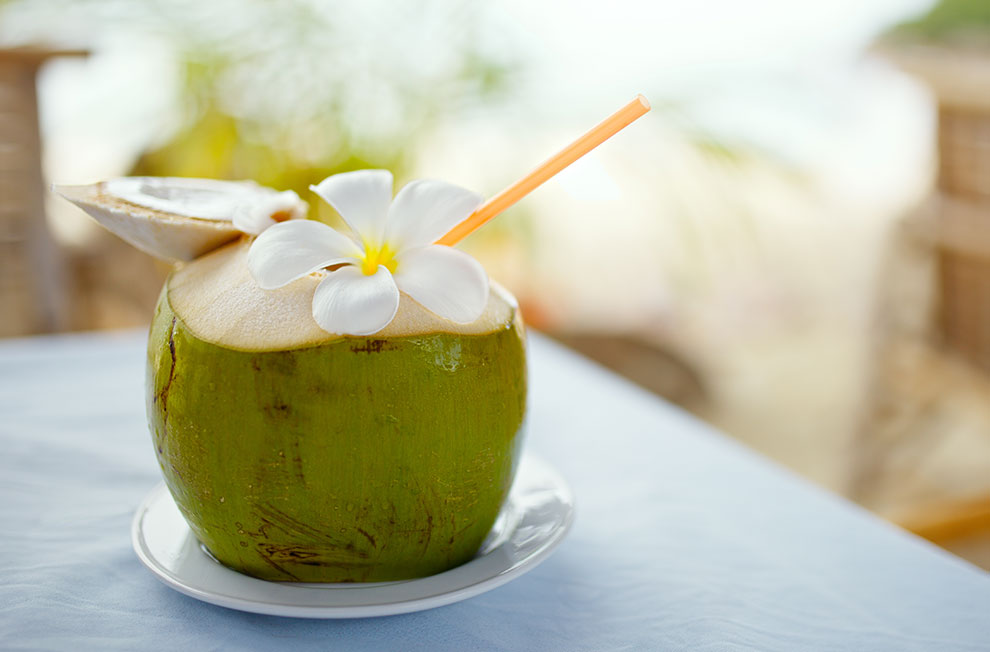 Harvested from young coconuts, coconut water is extremely hydrating and a great source of all five electrolytes. It serves as a natural energy drink and works amazingly well to replenish the minerals you lose when you have a fever or sweat a lot. Interestingly, it is also a great source of antioxidants and B-vitamins, which give it anti-inflammatory properties as well. Make a smoothie out of strawberries, coconut water, sea salt, celery, and honey for quick refill of your electrolyte reserve.
Harvested from young coconuts, coconut water is extremely hydrating and a great source of all five electrolytes. It serves as a natural energy drink and works amazingly well to replenish the minerals you lose when you have a fever or sweat a lot. Interestingly, it is also a great source of antioxidants and B-vitamins, which give it anti-inflammatory properties as well. Make a smoothie out of strawberries, coconut water, sea salt, celery, and honey for quick refill of your electrolyte reserve.
2. 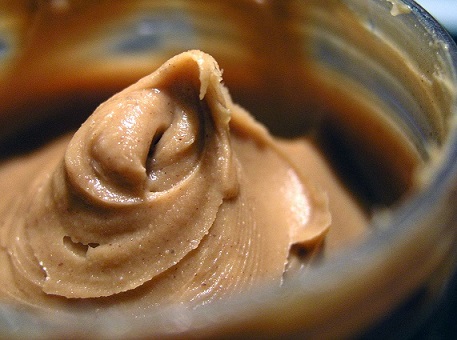 Nut Butter
Nut Butter
Nut butters are a great source of magnesium, sodium, and phosphorus. They also contain protein and are easy on your stomach. You can always opt for nut butter as an easy snack after a hard workout session. Even a spoonful of nut butter is enough to give you a quick electrolyte boost. It also works great as an ingredient in your electrolyte-filled smoothies.
3. Fruits and Veggies
Most vegetables and fruits provide you with potassium, calcium, and magnesium. Spinach, collard greens, and turnip greens are a great sources of calcium, whereas apricots, kiwi, potatoes, and sweet potatoes are high in potassium. Magnesium is found plentiful in artichoke hearts, spinach, okra, and butternut squash.
- Bananas
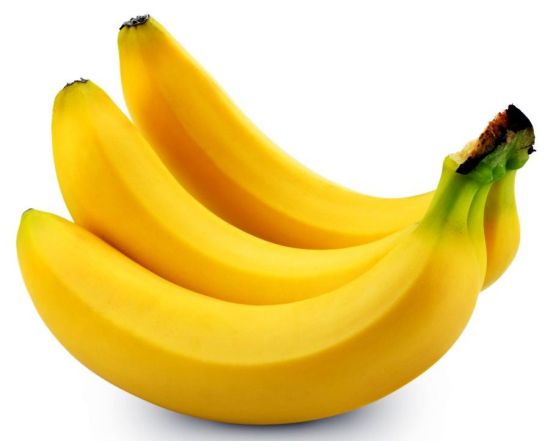 Loaded with potassium, bananas are great sources of electrolytes that work great to prevent fatigue and muscle cramps. They also have magnesium and are easy to digest. Bananas help refuel your body but they may not provide you with all the electrolytes you need after a serious workout session because they do not contain enough calcium and sodium. Enjoy a mix of spinach, yogurt, and banana or include it in a whole grain bagel with nut butter to get all essential electrolytes.
Loaded with potassium, bananas are great sources of electrolytes that work great to prevent fatigue and muscle cramps. They also have magnesium and are easy to digest. Bananas help refuel your body but they may not provide you with all the electrolytes you need after a serious workout session because they do not contain enough calcium and sodium. Enjoy a mix of spinach, yogurt, and banana or include it in a whole grain bagel with nut butter to get all essential electrolytes.
- Dark Leafy Greens
 Leafy greens provide you with major required electrolytes. You can include beet greens, kale, chard, and mustard greens in your diet to increase your intake of electrolytes. These greens are rich in potassium, calcium, sodium, and magnesium. Beans are also great but be sure to spice them property to avoid excess gas.
Leafy greens provide you with major required electrolytes. You can include beet greens, kale, chard, and mustard greens in your diet to increase your intake of electrolytes. These greens are rich in potassium, calcium, sodium, and magnesium. Beans are also great but be sure to spice them property to avoid excess gas.
4. Lemon Water
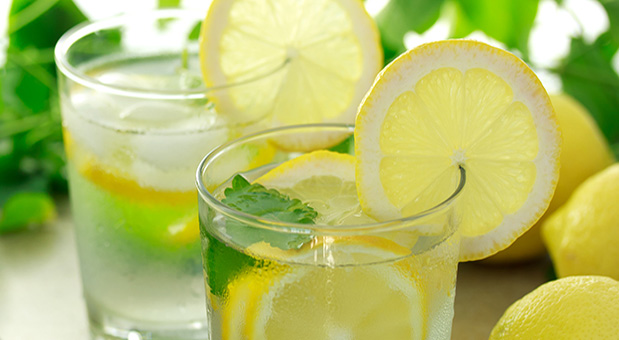 Citrus juices are always a great source of electrolytes. Lemon water is one great choice because it is incredibly hydrating and is rich in magnesium and potassium. It also contains some sodium and calcium. To make a refreshing drink, mix fresh lemon juice with sea salt, water, and honey. Adding coconut water instead of water to this energy drink will give you a quick electrolyte boost.
Citrus juices are always a great source of electrolytes. Lemon water is one great choice because it is incredibly hydrating and is rich in magnesium and potassium. It also contains some sodium and calcium. To make a refreshing drink, mix fresh lemon juice with sea salt, water, and honey. Adding coconut water instead of water to this energy drink will give you a quick electrolyte boost.
5. 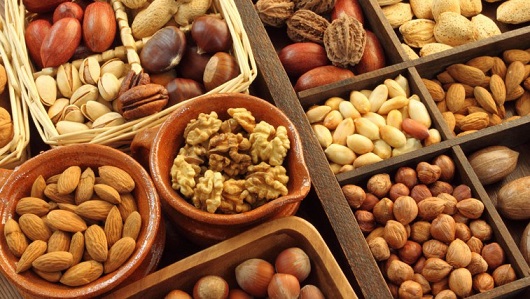 Nuts and Seeds
Nuts and Seeds
Most seeds and nuts are excellent sources of electrolytes, but you should be going for organic and unprocessed nuts and seeds. The best options include cashews, almonds, sesame seeds, walnuts, hazelnuts, sunflower seeds, pistachios, and peanuts.
6. Sports Drinks
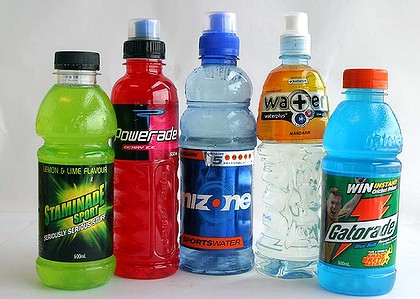 While vegetable and fruit juices are always better than other drinks, you can also find some commercially sold sports drink to boost electrolyte levels. If you are looking for vegetable or fruit juices, always put your money on juices that say "100% juice". Sports drinks also provide you with added electrolytes and are good to drink after a sweaty workout session.
While vegetable and fruit juices are always better than other drinks, you can also find some commercially sold sports drink to boost electrolyte levels. If you are looking for vegetable or fruit juices, always put your money on juices that say "100% juice". Sports drinks also provide you with added electrolytes and are good to drink after a sweaty workout session.
7. Salty Foods
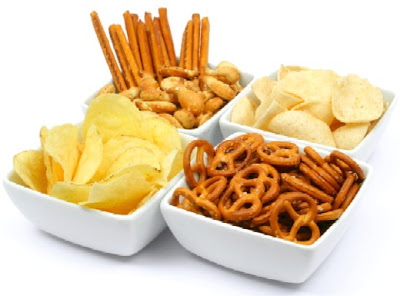 Including salty food in your diet will also help get important electrolytes. It is important to bear in mind that too much salt can have negative effects on your health, so you need to keep an eye on how much sodium chloride you add in your food. You do not usually need to eat additional salt because the typical American diet contains enough of it, but you may want to add some of it in your diet if you are excessively sweating during intense exercise. Baked potato chips, salted pretzels, and salted crackers are some good options to include in your diet.
Including salty food in your diet will also help get important electrolytes. It is important to bear in mind that too much salt can have negative effects on your health, so you need to keep an eye on how much sodium chloride you add in your food. You do not usually need to eat additional salt because the typical American diet contains enough of it, but you may want to add some of it in your diet if you are excessively sweating during intense exercise. Baked potato chips, salted pretzels, and salted crackers are some good options to include in your diet.
